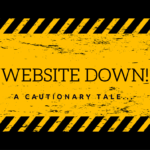So the majority of us have been staying home for nearly eight weeks now and keeping ourselves occupied with whatever passes the time, whether that’s baking bread, starting a new hobby, learning yoga, trying to home school, working out, hosting Zoom quizzes and Houseparties, completing Netflix and Tiktok, or just trying to keep children entertained.
There has been very little activity outside of these areas, which gives us much less to talk about as brands. Social media channels and PR platforms have previously been predominantly used to broadcast what brands are doing, and without these events going on and business slowing for a lot of people, many brands have found themselves struggling to know what to do from a PR and social media perspective – with a lot of people cutting their marketing budgets during this turbulent, uncertain time. However, this is the time to be putting more into your marketing! Yes, it’s going to involve more thought and time, but a lot of us have more time on our hands at the moment – why not use it productively to get yourself into a strong position for when things start to normalise?
As we emerge from lockdown and activity resumes, people will stick with the brands that have maintained a dialogue and offered support during this period. Here in the UAE, we are already seeing some of the restrictions lifting, so what you can you be doing for your brand during this next phase to ensure you have an engaged and committed community supporting you?
1. Follow the conversation
Listening is so much more important that speaking in any conversation, and social media is no different. You need to be tracking what’s being said – by your peers, competitors, investors, customers, licensing/governing bodies, and local community. Are you tracking keywords for your industry? The first investment you should make before you even set up social media accounts should be to a monitoring service that will provide you with a radar of hot topics, potential issues, talking points and your key advocates and detractors. There are a number of free tools you can use too, although these are nowhere near as effective – you can set up Google Alerts, and if you use a dashboard such as Hootsuite, you can have searches running for keywords and hashtags on Twitter and Instagram. Take the time now to research your options, play with the different tools, and get daily updates on keywords for your industry, this will then help you to develop your content strategy by indicating the topics that are most popular for your audience. You can also use these tools to see what your peers are doing and learn from their successors and failures, and to identify and learn more about the habits of your key influencers and detractors.
2. Monitor and measure your actions
Again, an often overlooked part of social media activity – the data! What data do you have about your channels, audience and content? If you don’t have any numbers then how do you have any idea what you are doing? Yes, a lot of social media is based around the emotional and the intuitive, but if you want to include it as part of a successful business strategy, that is going to get results for your business, then you need to involve the science. Take some time now to check out your Facebook analytics and your Instagram Analytics to start with – they’re easy to view and can give you a lot of information about the habits and demographics of your existing audience, including the days and times they are most active, as well as indicating what your most popular types of content are. You should also have Google Analytics set up on your website. If you have a strategic social media plan, then you will be directing your engaged audience to your website – and in therefore in order to know if your social media is effective you need to know how many people are clicking on your page, where they are coming from, how long they spend on each page, and what search terms they use to find you on Google. Any enquiries you get, whether by email or phone, as well as online sales, should identify the source – where they heard about you from. Once you have identified your data, play around with some of your posts – try different times, days of the week, language, hashtags, etc, and compare the results to see what work best. You need to monitoring and measuring all of your marketing activity, so think about establishing that in the coming weeks, and identifying the best metrics for your brand.
3. Develop a content bank
Using your monitoring results and peer comparisons, think about developing content streams on popular topics that engage your audience’s emotions. Do your research now and develop written content (blog posts), infographics and videos to tell the stories of your people, place, history and culture. How much do you know about your staff and clients? Are there any unique stories, what are their motivations? Could you find out more about them? How much do you know about the places you operate in? Do you support the economy, environment, culture and heritage – how much do you know about these areas – could you be sharing knowledge and insights about these locations? What about your company – are there any stories around the origins of the company, where the idea came from, the founders and first clients? Do you have anything that could support others looking to follow in your footsteps – any wisdom, advice or insights? Take this time to get some good smartphone photos from your teams and clients to show more ‘raw’ behind-the-scenes. Explore some of the many video and graphic apps and websites such as Canva and Inshot to see how you can develop your smartphone content. Create a bank of non time-sensitive content that you can share at any point in time, without people feeling they are being sold to.
Of course, at the same time, it’s critical that you continue to maintain an active presence during this time, whilst doing these extra activities too, so make sure you are posing and sharing consistently – adding value to your community (not selling!) and working to build their trust and inspire their confidence. If you’d like to talk to us about any of these ideas and some of the tools that might help you, please do feel free to drop me a line: sam@footstepcommunications.com





